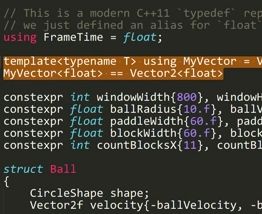Say hello to wxWidgets3.0
A few weeks ago wxWidgets3.0 was released, now it's time to take a look at it:
Say hello to wxWidgets3.0
From the Article
I remember the times, when wxWidgets 3.0 was already talked about, several years ago. Now, its been published in November, though I have to take a look at it. I've been using wxWidgets for years, but moved on to Qt for my own projects. So, lets have a look at wxWidgets 3.0...

 Hello again,
Hello again,  This article aims to dispel some confusion about move semantics.
This article aims to dispel some confusion about move semantics. While we're waiting for Concepts Lite, Eric shows how we can already do quite a bit in C++11 while planning for a transition to language support when it's available.
While we're waiting for Concepts Lite, Eric shows how we can already do quite a bit in C++11 while planning for a transition to language support when it's available. For the first time in several years, Bjarne Stroustrup and Herb Sutter will hold a two-day seminar on C++
For the first time in several years, Bjarne Stroustrup and Herb Sutter will hold a two-day seminar on C++ What is this "type erasure" thing you speak of? It's not something at the other end of a pencil (remember those?) but a way to hold an object without knowing its exact type. Andrzej explains:
What is this "type erasure" thing you speak of? It's not something at the other end of a pencil (remember those?) but a way to hold an object without knowing its exact type. Andrzej explains: